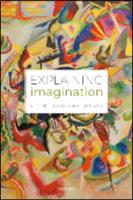Explaining Imagination
Abstract
Imagination will remain a mystery—we will not be able to explain imagination—until we can break it into simpler parts that are more easily understood. Explaining Imagination is a guidebook for doing just that, where the simpler parts are other familiar mental states like beliefs, desires, judgments, decisions, and intentions. In different combinations and contexts, these states constitute cases of imagining. This reductive approach to imagination is at direct odds with the current orthodoxy, which sees imagination as an irreducible, sui generis mental state or process—one that influences our judgments, beliefs, desires, and so on, without being constituted by them. Explaining Imagination looks closely at the main contexts where imagination is thought to be at work and argues that, in each case, the capacity is best explained by appeal to a person’s beliefs, judgments, desires, intentions, or decisions. The proper conclusion is not that there are no imaginings after all, but that these other states simply constitute the relevant cases of imagining. Contexts explored in depth include: hypothetical and counterfactual reasoning, engaging in pretense, appreciating fictions, and generating creative works. The special role of mental imagery within states like beliefs, desires, and judgments is explained in a way that is compatible with reducing imagination to more basic folk psychological states. A significant upshot is that, in order to create an artificial mind with an imagination, we need only give it these more ordinary mental states.
Keywords
imagination; imagine; mental imagery; pretense; folk psychology; conditionals; fiction; creativity; beliefs; reductionDOI
10.1093/oso/9780198815068.001.0001Publisher
Oxford University PressPublisher website
https://global.oup.com/Publication date and place
Oxford, 2020Grantor
Classification
Philosophy
Philosophy of mind
Cognition and cognitive psychology
Philosophy: aesthetics


 Download
Download Web Shop
Web Shop